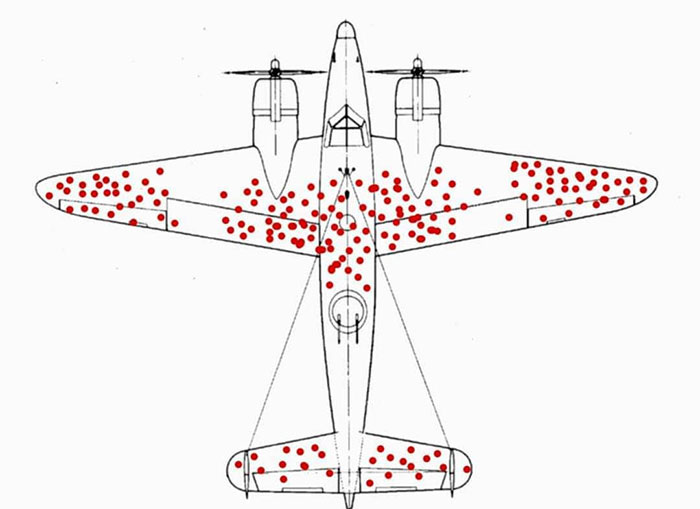Survivorship Bias

Survivorship Bias is a common cognitive bias where we arrive at false conclusions by only examining success cases.
For example, on one of my former teams, some of us had been keeping tabs on how well Microservices had worked at NetFlix, and we didn't want to miss out. Collectively, we decided to start a new project following a strict Microservice architecture.
However, we failed to consider the stories of where Microservices hadn't worked out, discovering for ourselves how much unnecessary complexity they introduce for a small team. Unnecessarily introducing Microservices was so common in tech during that era that ThoughtWorks gave it a name: Microservice Envy, and put it on Hold in their 2015 Radar.
Every page about Survivorship Bias has to include the story of Abraham Wald. During WW2, he and his team were instructed to recommend which parts of fighter planes to reinforce based on an assessment of the damage they took during battle. At odds with recommendations from the US military, he recommended that they strengthen the plane parts that took no damage. The aircraft that had been hit in those areas never made it back.
Another error of thinking is Confirmation Bias.
References

It is one of my favourite books on thinking and note-taking in general. Pg 136 talks about Survivorship Bias.